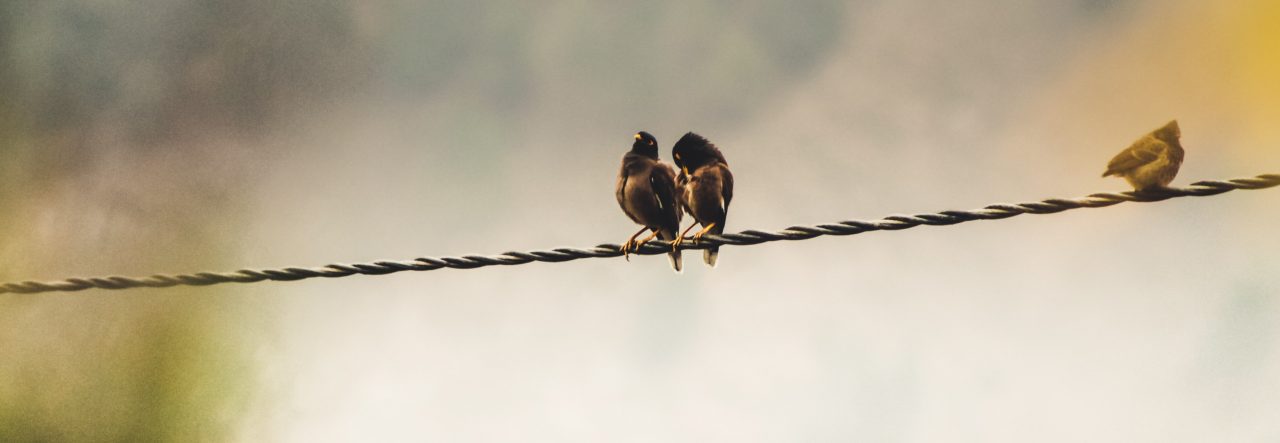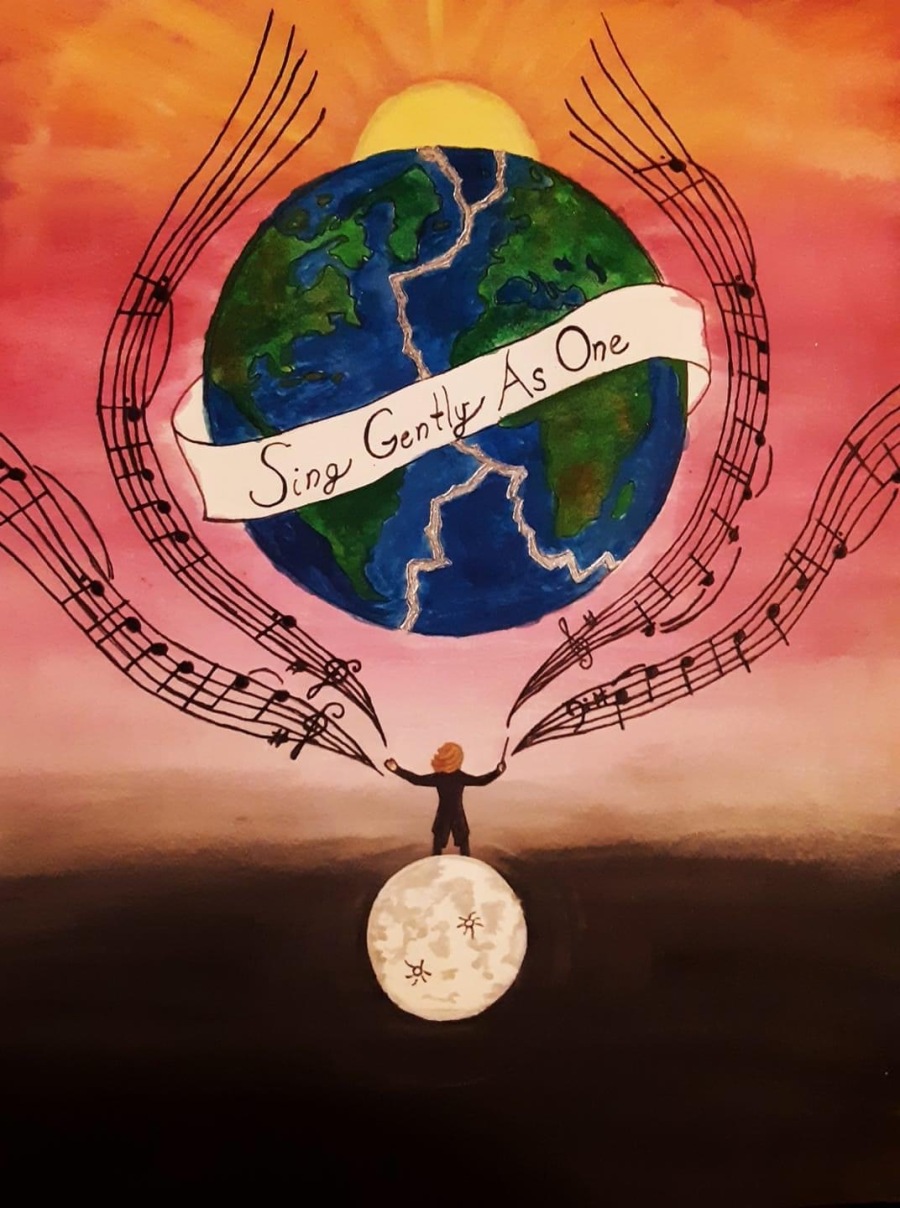My next several blogs will be a series to commemorate the life of my brother Doug and the musical gift he left behind, “Doug & the Slugs, Music from a Sick Man’s Bedroom”, along with reflections and scripture to encourage all who are battling with serious illness or difficult life circumstances.
Douglas Andrew Friesen (1964-1998), was the third child and only son of Peter and Marilyn Friesen, born on July 1, 1964 in Hillsboro, Kansas.
 Siblings Susan, Doug, Jenny (author)
Siblings Susan, Doug, Jenny (author)
Doug loved all things sports, but grew up in a musical household. His musicianship caught up with him in college, where he discovered he could sing, to the delight of his musician father. He went on to receive his MA in Vocal Performance from the University of South Dakota, Vermillion, South Dakota, in 1988.
 High school senior photo, Freeman Academy, Freeman, SD
High school senior photo, Freeman Academy, Freeman, SD
Doug taught music for 8 years at Winkler Bible Institute in Winkler, Manitoba Canada along with our father. There he led many student worship teams with his voice and guitar, sang for churches, weddings and community groups, taught voice lessons, directed the college choir and coached basketball, another passion of his!
 Doug touring with the WBI Choir
Doug touring with the WBI Choir
In 1995 Doug and his family moved to East Grand Forks, North Dakota, where he began serving as Worship and Education pastor at Grace Baptist Church. In just a few short months after this transition, he was diagnosed with non-Hodgkin’s lymphoma.
While he was being treated for cancer, Doug made a cd on which he sang and recorded all the vocals and accompaniment using his new, state of the art (at that time) electric keyboard. Doug made copies, designed and printed a jacket for the cassette tape cases, and gave one to each family member, entitling it “Doug & the Slugs, Music from a Sick Man’s Bedroom.”
Our family had Doug’s original cassette recording re-recorded digitally in 2018 to remember Doug and commemorate the 20th anniversary of his passing on August 11, 1998. We are deeply grateful to Neil Bontrager and Sperra Studios for their work in digitalizing Doug’s cd.

 Original cassette tape Digitally re-recorded cd
Original cassette tape Digitally re-recorded cd
It is my hope to post one song on each upcoming blog along with my writing as I listened to each song and reflected with the Lord on the words and thoughts that came to me. Listening to Doug’s music nearly 19 years after he died brought back memories of those rocky 2 1/2 years of his illness. I took refuge in the Lord in a whole new way during those years, and Doug did too. It is my prayer that you will find comfort for your journey in Doug’s songs, the scriptures shared, and in the reflections portion of the text.
Reflection
The Lord is a shelter for the oppressed, A refuge in the times of trouble. Those who know your name trust in You, For you, O Lord, do not abandon those who search for You. Psalm 9:9-10
When have you experienced the Lord as your shelter? Recall the circumstances. How did these circumstances affect your faith in God? Maybe there a situation in your life now where you need God to be your refuge, your shelter? How is God inviting you to trust Him today? Talk with God about what you discover.





